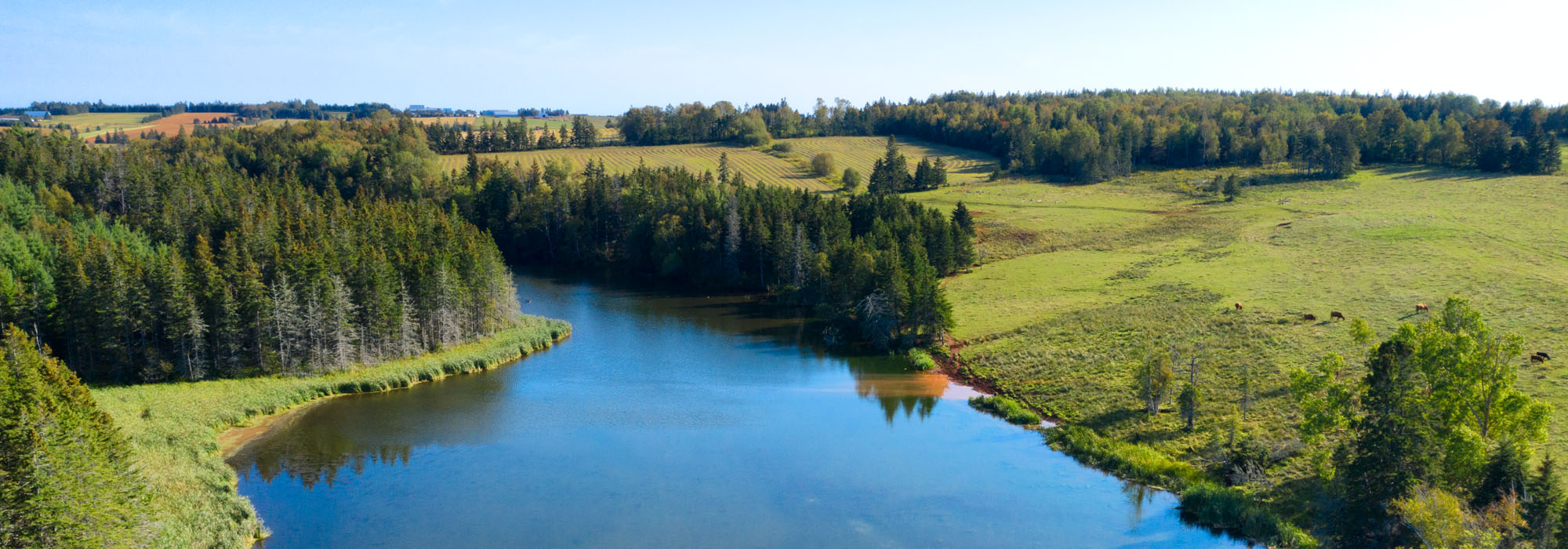
Water is a shared resource that crosses jurisdictional boundaries, both geographical and bureaucratic. Effective management and governance of water require robust prediction, coordination, collaboration and oversight. The federal government is uniquely situated to play this role, yet federal leadership has withered over the past several decades. Clear evidence of this decline is the fact that the Canada Water Act has not been modernized since it was passed in 1970, and measures to implement its provisions have not been funded effectively since the early 1990s.
This gap is striking. Our understanding of water and our attitudes toward it — including scientific knowledge of hydrological processes, public perceptions, how it should be governed and how it is being altered by climate change — have changed tremendously in the past 50 years, yet Canada’s primary federal freshwater legislation has remained largely the same. As argued in a recent report published by a partnership of water science, law and governance organizations (including those represented by the authors of this article), a comprehensive approach to federal water leadership is needed, and modernization of the Canada Water Act is the most effective way to reach this goal. Federal leadership must address both water governance — the decisions we make and how we make them — and water management, the operational approaches we adopt under a governance regime.
The good news is that meaningful change may be on the horizon. The federal government has committed to establishing a Canada Water Agency, a new body that could greatly improve our collective capacity to address current inaction and enhance federal water leadership. The Canada Water Agency is an important goal, but it will not be sufficient on its own; rather, it should be seen as the first step toward deeper legislative and policy renewal that focuses on modernization of the Canada Water Act. In particular, an effective Canada Water Agency and a modernized Canada Water Act are critical to advancing three key priorities: building resilience to cope with climate change, advancing reconciliation with Indigenous peoples and ensuring effective water governance.
Coping with climate change
Climate change is the driving force that must inform each and every step we take. Predictions using the best climate and hydrological models show we will experience more persistent and extreme floods and droughts, a much earlier and rainier spring, less lake ice, unreliable snowpack and degraded water quality, with more frequent harmful algal blooms in lakes across the country. Water management strategies designed for the 20th century are not working for the hydrology of a climate-change-impacted 21st century.
A key part of addressing climate change is ensuring that we have the knowledge to predict and respond to rapidly changing water challenges. This means centralizing and harmonizing the federal collection of critical water data, including precipitation, surface water quantity and quality, groundwater, soil moisture, stream flow and so on. Data collected by provinces, territories, Indigenous peoples and others must also be coordinated. The federal government can add significant capacity to ensure monitoring and information systems are robust and providing a central clearinghouse for Canada’s water data.
Data collection, however, is not enough. The federal government must also play a lead role in ensuring data are leveraged effectively to build accurate flood and drought forecasting and prediction models. These predictions can be used to map flood plains, help guide safe development and conservation in our communities and enable emergency response that could save lives and infrastructure. Forecasting stream flow, soil moisture and drought can help our agricultural producers to irrigate effectively and to maintain or even increase their harvests in a time of unprecedented climate change and extreme weather. A Canada Water Agency can work toward these goals over the short term by combining observations and predictions into a centralized hub, as called for by the World Meteorological Organization. Over the long term, institutional and procedural integration can be embedded within a renewed Canada Water Act.
Advancing reconciliation
Reconciliation, much like climate change, is all-encompassing. A deep and engaged commitment to reconciliation is necessary to reduce and manage water conflicts, such as those that arise from development and natural resource extraction on Indigenous territory. Indigenous peoples must be equal and sovereign partners in water management and governance, which would require meaningful changes to our relationships, institutions and laws. We have seen movement in this area in recent years: Canada has accepted the United Nations Declaration on the Rights of Indigenous Peoples, and British Columbia recently passed legislation to implement it — but the challenge now is bringing these ideas into practice.
The Canada Water Agency and the Canada Water Act both offer potentially transformative opportunities to advance reconciliation through a water focus. This work should begin immediately. In the short term, the federal government can demonstrate its commitment to a new shared approach by collaborating with Indigenous peoples from the very outset to jointly develop, create and implement the mandate of the Canada Water Agency. Beyond this immediate priority, Canada Water Act reform provides an avenue for comprehensive and lasting reconciliation through co-drafting. Co-drafting allows Indigenous peoples and the federal government to co-write a modernized Canada Water Act together. It does not fundamentally change the legislative process once the bill has been presented in the House; rather, co-drafting means that Indigenous peoples are involved in writing the draft bill as collaborators from the very beginning. This reconciliation-based, consent-honouring approach can help avoid water conflicts, build more inclusive legislation and lay the foundation for long-term institutional collaboration.
Improving governance
The third priority of federal law and policy renewal is improving water governance. Water governance in Canada is fragmented and often ineffective, a reality that stems both from the nature of water — rivers, lakes and streams often flow across multiple jurisdictions — and from the fact that responsibility for water is not specifically defined in the Canadian Constitution. Amid this fragmentation, the federal government has historically taken a tepid approach to governing water resources.
The federal government can and should play a leadership role in advancing a nested watershed governance approach. Streams, aquifers and rivers are nested in sub-basins, which in turn are nested within watersheds and river basins; in a similar way, water governance, too, must be a nested system that is integrated across watersheds, river basins, jurisdictions and institutional arrangements. Nested decision-making requires governments to break down silos and overcome jurisdictional squabbles among federal, provincial, territorial, Indigenous and municipal authorities so that everyone thinks about water in an integrated way. This approach is consistent with international best practice. A Canada Water Agency would be a starting point for achieving such governance integration, but substantive legal reform through a renewed Canada Water Act is needed to achieve the necessary deep institutional change.
A modernized Canada Water Act would improve coordination and synchronization in water management and governance across all governments and their institutions. The role of federal water commissioner could be established by the Act to anticipate, investigate, prevent and resolve water disputes across shared jurisdictions and among communities. The Act could also entrench a nested watershed governance approach by helping better align legal and decision-making processes with watershed health and ecological functions. One way this could be done is by prioritizing and better protecting “environmental flows”: the quantity, timing and quality of water flows required to sustain freshwater ecosystems and the human livelihoods that depend on these ecosystems. By mandating consideration of environmental flows, the Canada Water Act could help ensure that individual water management actions always take into account overall watershed health.
Canada’s federal water regime needs a comprehensive overhaul that must involve both the creation of key management institutions such as a Canada Water Agency and renewal of the Canada Water Act. This overhaul should focus on building climate change resilience, advancing reconciliation with Indigenous peoples and supporting innovative approaches to water governance. Establishing the Canada Water Agency, and doing it right, could be an important step in the right direction.
Richard Farthing-Nichol (Forum for Leadership on Water) and Stephanie Merrill (Global Water Futures Program) contributed to this article.
Photo: Prince Edward Island. Shutterstock.com, by cate_89










